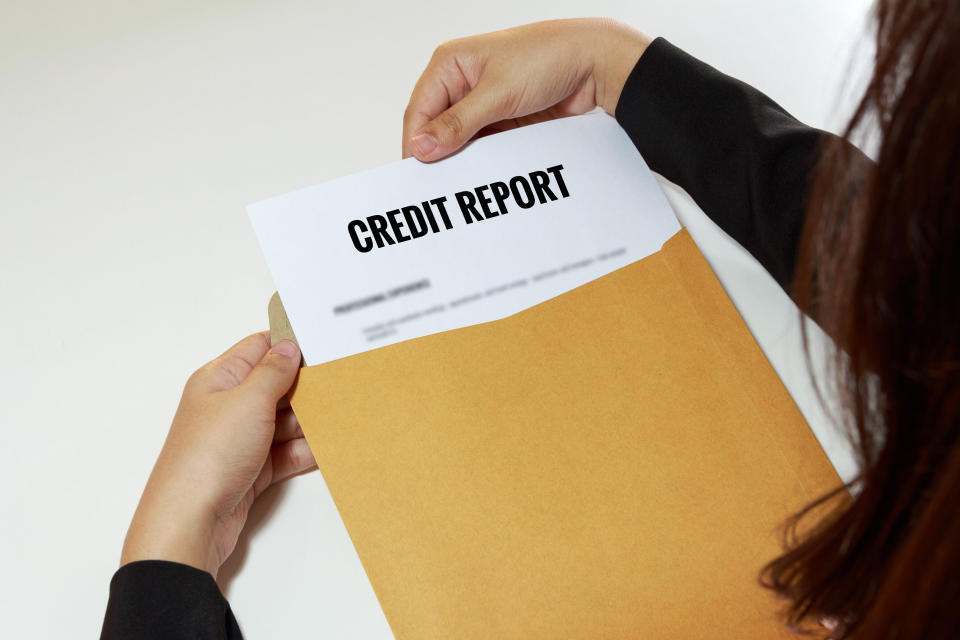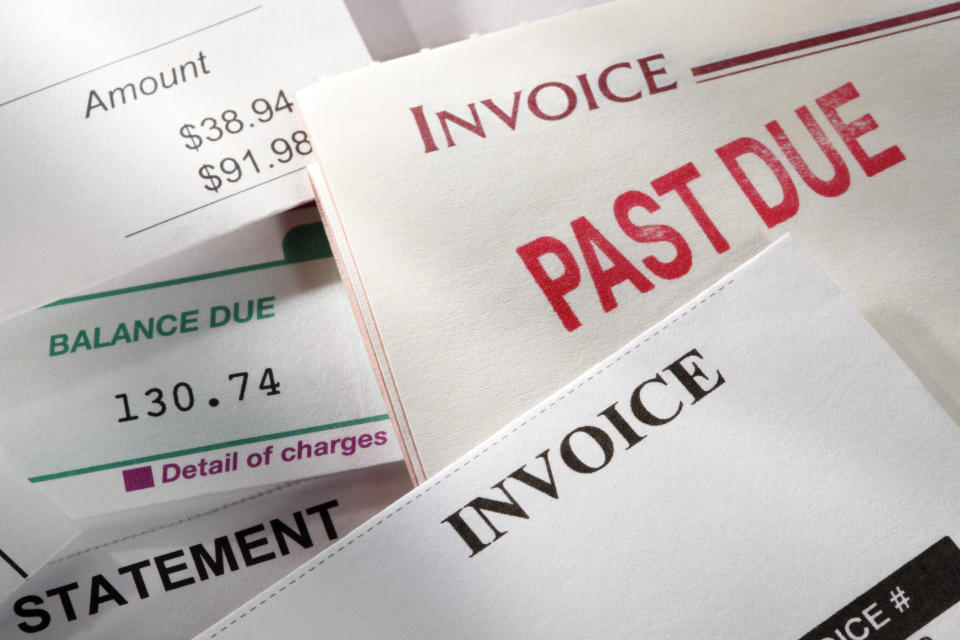Bonds Are About To Become A Risky Investment, Experts Warn

The stock market regularly makes headlines, especially with the wild swings we’ve experienced lately. But volatility among stocks is nothing new. What investors should really pay attention to, experts warn, is the bond market.
Long considered a secure, steady way to earn income and hedge retirement savings against risk, bonds likely won’t be such a haven for much longer. “The volatility that we may experience in the bond market could easily exceed the volatility that’s normally associated with the stock market,” said Ric Edelman, a financial advisor, author, syndicated radio host and co-founder of Edelman Financial Engines. “And the worst part is, it will hit the very investor who’s least able to sustain the volatility: the conservative, income-oriented investor who is retired and doesn’t have 30 years to wait for recovery.”
Interest Rate Risk And Its Effect On Bonds
Rather than focusing on the short-term fluctuations of the stock market, which don’t have much bearing on long-term goals, such as saving for retirement, Edelman said investors should be more concerned about interest rates and their effect on the bond market.
“Nobody expected that interest rates would stay so low for so long or that we might experience zero or even negative interest rates,” Edelman said. “That means investors need to recognize the notion of interest rate risk.”
The 1970s are considered by many to be one of the worst economic periods in modern American history. “Folks who are old enough to remember can fondly recall the days of 15% CD rates and can also lament the days of 21% mortgages,” Edelman said. Interest rates were at all-time highs until Ronald Reagan took office in 1982, at which point interest rates began to come down (you can argue the degree to which Reagan was responsible for this).
Considering that the average investor is in the market for about 40 years, according to Edelman, most investors today have only ever experienced consistently falling interest rates with a few upward fluctuations here and there. It also means they’ve only ever experienced a rising bond market, since interest rates and bond yields have an inverse relationship.
“It has caused many investors to conclude that this is the way bonds always behave because, in their individual memory, that’s the way bonds always did behave,” Edelman said.
What people may not realize is that at some point interest rates will have to rise again, which means bond yields will fall in value. “They are on opposite ends of a seesaw: When one goes up, the other goes down,” Edelman said.
Today, that ratio is about 1-to-7, meaning for every 1% change in interest rates, there’s a 7% change in bond values. “If interest rates go from 2% to 4% ― a 2% increase ― bonds could lose 15% of their value... and the majority of bond investors, I fear, are not aware of this risk,” he said.
Is It Time To Ditch Bonds?
Greg McBride, a chartered financial analyst and senior vice president at Bankrate.com, agreed with Edelman’s sentiment. “There is a ton of risk in the bond market, concentrated among long-term bonds,” he said. “And a lot of investors that went into bonds under the guise of safety could get a rude awakening if interest rates rise and the value of those long-term bonds plunges.”
Of course, experts have been claiming for the last 10 years that rates are going to go up. When they have risen, they’ve done so modestly, only to move right back down. “A skeptical investor might think this is crying wolf,” McBride said. “But just because it hasn’t happened yet doesn’t mean it’s not going to happen.”
The whole idea of going into bonds for less volatile returns and predictable income is no longer a guarantee. “You are getting very little in the way of income, and you’ve got a risk of significant downside volatility at this point,” McBride said. “Investors would be prudent to take a little money off the table now and lighten up on bonds.”
That doesn’t mean you should ditch them entirely, however. Edelman advised that investors simply shorten the maturity. “We are recommending that you hold short-term and intermediate-term ― five- to seven-year maturities for the most part ― rather than predominantly 20- and 30-year maturities,” he said. “This will insulate you to a great degree against the risk that interest rates might rise.” Edelman pointed out that since interest rates are now very low across the board, the difference in yield between a seven-year Treasury and a 20-year Treasury is not all that significant. “So you’re not sacrificing much income in order to obtain a higher degree of safety.”
McBride added that for investors who still have a long time horizon before retirement, quality dividend-paying stocks are a much more attractive option. “The valuations are reasonable, the income stream is poised to grow over time (unlike a bond, which stays static) and you’re earning yields that are above what you’re going to get on bonds,” he said.
McBride recognized that this understandably might seem counterintuitive to investors. “The reality of it is you can generate income ― and should generate income ― across your portfolio,” he said. “Not just in bonds and fixed-income, but from equities, real estate investment trusts, master limited partnerships... some of those investments that are riskier in the short-term are a much better hedge against inflation and preserving your buying power in the long-term.”
If it matters to you, it matters to us. Support HuffPost’s journalism here.
Related Coverage
How To Recession-Proof Your Finances
Personal Loans Are Much Riskier Than Banks Lead You To Believe
How Impeaching President Trump Might Affect The Stock Market
Also on HuffPost
Myth 1: You should stay away from credit ― period.

Those who avoid using credit are at risk of never developing a strong credit history, according to Eszylfie Taylor, president of Taylor Insurance and Financial Services in Pasadena, California. “This may present challenges when a consumer looks to make larger purchases like a car or home, as they have not exhibited the ability to borrow money and repay debts,” Taylor said.
But even if you don’t plan on borrowing money for a major purchase, you can still run into trouble when renting an apartment, opening a new utility account or even getting a job if you don’t have an established credit history.
You don’t have to put yourself in debt to build good credit. But you do need to have some skin in the game.“The simple truth is that consumers should look to establish multiple lines of credit and make payments consistently to build up their credit scores,” said Taylor.
Myth 2: Closing credit cards will raise your credit score.

According to Roslyn Lash, a financial counselor and the author of The 7 Fruits of Budgeting, this has to do with your credit utilization ratio. This ratio represents how much of your total available credit you’re actually using ― the lower your utilization, the better your score.
If you close a credit card, your available credit immediately drops.“If you have less credit but the same amount of debt, it could actually hurt your score,” Lash explained. In most cases, it’s better to cut up the card but keep the account open. Setting up account alerts can help you keep tabs on any activity or fraudulent charges.
Myth 3: Checking your own credit hurts your score.

Checking your own credit results in a “soft” inquiry, which doesn’t affect your score, according to Adrian Nazari, CEO and founder of free credit score site Credit Sesame. Other types of soft inquiries include when you’re pre-approved for a credit card in the mail or a prospective employer runs a credit check as part of the hiring process.
You can check your credit score as often as you want with no consequence. In fact, you should check it regularly; a sudden dip could indicate a problem or possible fraud.
Sites such as Credit Sesame and Credit Karma allow you to see your VantageScore 3.0 for free, though you should know this is usually not the score that lenders review. The most widely used score is your FICO score. And though there are services that charge a monthly fee to gain access to your FICO, you can often see it for free if you have a credit card with a major issuer such as Chase.
Myth 4: Making more money will increase your score.

It seems to make sense that the more you earn, the easier it should be for you to pay your debts, but “your income has nothing to do with your score,” Lash said. So feel free to celebrate that next raise, but know that your credit score will remain the same.
Myth 5: Credit reports and scores are the same things.
![<strong>Truth:</strong> Though it represents the same types of information, your <a href="https://www.huffpost.com/topic/credit-report">credit report</a> is not the same as your credit score.Think of a credit report as your financial report card and your credit score as the overall grade.<br /><br />“Your credit report is a record of your credit accounts … [including] your identifying information, a list of your credit accounts, any collection accounts you have, public records like bankruptcies and liens and any inquiries that have been made into your credit,” said Nazari.<br /><br />On the other hand, your credit score is a three-digit number that represents how likely you are to repay your debts based on the information contained in the report. Your score is “based on a complex algorithm that evaluates your relationship with credit over time,” explained Nazari. “Your credit score is not included on your credit report.”](https://s.yimg.com/ny/api/res/1.2/VggrQF_VOdzWL5.OO3PO.A--/YXBwaWQ9aGlnaGxhbmRlcjt3PTk2MA--/https://img.huffingtonpost.com/asset/5d0184d62500006813df9a9e.jpeg)
“Your credit report is a record of your credit accounts … [including] your identifying information, a list of your credit accounts, any collection accounts you have, public records like bankruptcies and liens and any inquiries that have been made into your credit,” said Nazari.
On the other hand, your credit score is a three-digit number that represents how likely you are to repay your debts based on the information contained in the report. Your score is “based on a complex algorithm that evaluates your relationship with credit over time,” explained Nazari. “Your credit score is not included on your credit report.”
Myth 6: Once delinquent accounts are paid off, your slate is wiped clean.

“Your credit report shows positive and negative accounts, including collection accounts, discharges, late payments and bankruptcies ― some of which can be on your report for up to 10 years,” explained Nazari.“That said, some collection agencies openly advertise that they will stop reporting a collection account once it’s paid off,” he added.
If that’s the case, keep an eye on your credit reports to make sure the delinquent account is removed. In most cases, however, you’ll have to live with the mark until it expires. Fortunately, its impact on your credit score should decrease with time, depending on the type of debt.
Myth 7: You can max out your cards as long as you pay the balance every month.

That’s because the date that credit card issuers report your balance to the credit bureaus is often not the same date as your payment due date.
“For a better credit score, keep your balance under 30 percent of your card’s total limit,” recommended Nazari. So if your card has a limit of $1,000, you should avoid carrying a balance of more than $300 at any time.
However, if you want to be able to use more of your available credit, you can pay down your balance before it gets reported to the bureaus. Usually, said Nazari, it’s the same as the statement closing date, but you should check with your card issuer to be sure.
Myth 8: You need a credit repair company to fix your bad credit.

“The good news is that one’s credit is ever changing and can be repaired if there have been some missteps in the past,” Taylor said. “In time, issues from the past will pass and credit can be restored ... no matter how bad it is today.”
Love HuffPost? Become a founding member of HuffPost Plus today.
This article originally appeared on HuffPost.

